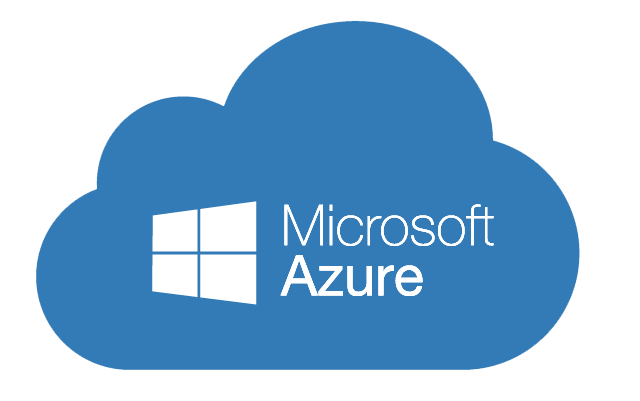Microsoft Azure has become a top cloud platform, and more experts are looking to enhance their understanding of the platform due to its rising prominence. If you are looking to advance your career in cloud computing, obtaining a Microsoft Azure certification can showcase your expertise and experience. As cloud computing continues to grow, many companies seek individuals with knowledge of cloud-based technologies, and a Microsoft Azure certification can help you stand out in the competitive job market.
Choosing the right certification path can be daunting, with numerous certification options available. In this article, we will explore the various Microsoft Azure certification paths and their implications. We will also examine the benefits of obtaining a certification and the different levels of certification that you can achieve.
Why Should You Get a Microsoft Azure Certification?
There are several reasons why you should consider obtaining a Microsoft Azure certification. Firstly, Microsoft Azure certifications are designed to evaluate your cloud computing knowledge and expertise, allowing you to gain a deeper understanding of Azure and apply your knowledge to real-world situations.
Additionally, Microsoft Azure certifications are frequently updated to reflect changes in the platform and industry, ensuring that your knowledge remains up-to-date with the latest cloud technology. Finally, a Microsoft Azure certification training can boost your career prospects, as many companies prefer candidates with industry-recognized certifications, making you a more attractive candidate for employment or promotion.
Microsoft Azure Certification Path 2023
The four major Microsoft Azure Certification Paths are:
1.Azure Fundamentals
Fundamental certifications are entry-level certifications that show your basic knowledge of Azure services and cloud computing. It introduces Azure's fundamental principles and functionalities, such as virtual machines, networking storage, and security. This certificate suits those new to cloud computing who want to learn about the Azure platform.
2.Associate Certifications
Associate certifications are made for professionals with some experience in Azure. It is for those who want to demonstrate their expertise in specific areas.
Associate certifications types are:
Microsoft Certified: Azure Developer Associate – This certification validates your skills in designing and deploying cloud-based applications with Azure. It discusses Azure compute, storage solutions, and app services.
Microsoft Certified: Azure Administrator Associate – This certification validates your Azure resources and services knowledge. It discusses Azure networking, identity management, and security.
Microsoft Certified: Azure AI Engineer Associate – This certification evaluates your abilities to build and execute Azure AI systems. Natural language processing, computer vision, and machine learning are among the topics covered.
Microsoft Certified: Azure Security Engineer Associate – This certification verifies your knowledge of creating security measures and threat protection on Azure. It addresses issues like security management, identity and access management, and data security.
3.Expert Certifications
Expert certificates are intended for seasoned individuals who wish to demonstrate their superior expertise and familiarity with Azure.
There are two expert certifications types:
Microsoft Certified: Azure DevOps Engineer Expert – This certification demonstrates that you can implement DevOps ideas and practises on Azure. It covers infrastructure as code, continuous integration and delivery, monitoring and logging, and infrastructure as code.
Microsoft Certified: Azure Solutions Architect Expert – This certification confirms your proficiency in developing and implementing Azure solutions. It includes information on business continuity and disaster recovery, Azure infrastructure, platform services, and security.
4.Specialty certifications
These credentials are perfect for experts who thoroughly understand Azure and wish to develop their cloud computing careers. These certificates, which cover specialist skills, are perfect for individuals who wish to show that they are knowledgeable about a certain aspect of Azure.
There are five speciality certifications types:
Microsoft Certified: Azure for SAP Workloads Specialty – This certification indicates that you can manage and deploy SAP workloads on Azure. Such subjects as SAP HANA, SAP NetWeaver, and SAP S/4HANA are covered.
Microsoft Certified: Azure IoT Developer Specialty – This certification confirms your proficiency in creating and implementing IoT solutions on Azure. It includes subjects like data processing, monitoring, troubleshooting, and device communication.
Microsoft Certified: Azure Security Engineer Specialty – This certification verifies your proficiency in putting security controls and threat protection on Azure in place. It addresses issues including identification and access management, data protection, and security management.
Microsoft Certified: Azure Data Scientist Associate – This credential attests to your proficiency in using Azure tools and services to create and use machine learning models. It teaches feature engineering, model creation, and deployment.
Microsoft Certified: Azure Database Administrator Associate – This credential verifies your aptitude for managing and maintaining Azure databases. It discusses Azure SQL Database, Azure Cosmos DB, Azure Database for PostgreSQL and MySQL
Conclusion
Getting a Microsoft Azure certification path in 2023 can demonstrate your cloud computing skills and experience. There is a certification that matches your experience and career ambitions, with multiple levels and pathways offered. A Microsoft Azure certification path can increase your career prospects and keep you up to date, no matter if you're a beginner or a seasoned professional.


